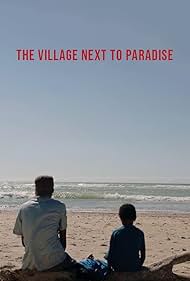A newly formed family faces challenges as they pursue individual goals and face the complexities of modern life, relying on love, trust and resilience to guide them. On a deserted beach, father and son Mamargade and Cigaal enjoy some bliss in nature, with the wind and waves. These precious moments are few and far between, the countless jobs, drone strikes that bring death from above, checkpoints and work payments that take months to implement, if they ever materialise. In their simple, tiny house made of concrete blocks and corrugated steel, the couple lives with Mamargade’s sister Araweelo. Cigaal dreams of light. Araweelo dreams of making and selling her own clothes. Unable to get a loan as a single woman, Araweelo hatches a plan to circumvent the regulations. The risks are immense. “All my life I’ve tried to do things better,” Mamargade says, “but I keep making mistakes.” When misfortune overshadows virtually every aspect of everyday life, it’s impossible to avoid “mistakes.” However, the humble and hardworking trio never stop striving and hoping for happiness, their own business, beach time, school funding and better days. “Village Next to Paradise” premiered in Cannes. “It’s the first film shot on location in Somalia,” said director Mo Harawe, who attended the North American premiere at the Toronto International Film Festival. Harawe worked with the Paradise community to make the film and hired non-professional actors. The investment in Somalia paid off in terms of the film’s authenticity. The ambient sounds of radio music, traffic, waves and wind also added to the realistic character. “The wind is a character,” Harawe said, “so human characters are never alone.” Culture is also a character, and I enjoyed immersing myself in Somali songs, stories and landscapes.



 40/37
40/37
Leave a Reply